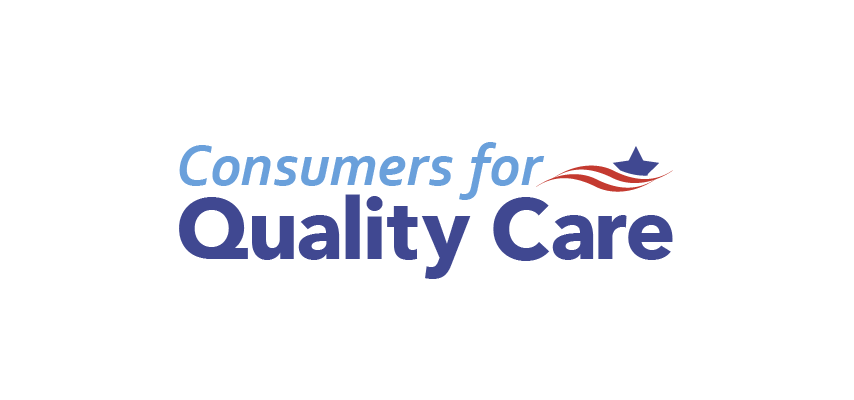CQC Urges Nation’s Governors to Address Financially Toxic Hospital Practices
By Consumers For Quality Care, on July 24, 2019

Consumers for Quality Care Asks Governors to Focus on High Health Care Costs, Uncertainty in the System and Predatory Practices at NGA’s Summer Meeting
Salt Lake City – As governors from across the United Stated gather in Salt Lake City for the National Governors Association (NGA) Summer meeting, Consumers for Quality Care (CQC) today issued an open letter urging them to address the predatory practices hospitals are using against financially vulnerable patients throughout the country.
“States are the laboratories of our democracy, and governors can provide critical leadership in addressing our nation’s health care challenges, particularly around high costs and overall uncertainty in the system,” wrote CQC’s board members.
“People turn to hospitals when they are desperate for care and, in many cases, experiencing emergencies. Patients shouldn’t have to worry about financial ruin as a result of emergency medical procedures or hospital visits. Unfortunately, such visits can become financially toxic for patients as a result of hospital practices designed to maximize profits,” they continued.
The letter highlights specific practices hospitals are employing that routinely threaten the economic stability of Americans across the country, including pursuing lawsuits against patients who can’t afford to pay their hospital bills, adding annual interest to medical bills, placing liens on patients’ homes, garnishing wages, seizing bank accounts and neglecting to inform patients about community benefits or charity care they may qualify for.
According to research from Ipsos-CQC, the rising costs and lack of transparency in the health care system is a major issue; 84 percent of Americans report being concerned with health care costs, 91 percent of patients are concerned about receiving surprise bills from hospitals and 65 percent say it’s difficult to understand the cost of care at a hospital.
“As stories of patients struggling financially due to the predatory practices of hospitals continue to come to light, we urge our nation’s governors to take note of the larger pattern of unethical hospital practices impacting states across the country,” the board members wrote. “We ask that you work together with your Departments of Health and other regulatory entities to curtail these toxic practices that take advantage of patients and leave them in severe financial distress.”
Consumers for Quality Care (CQC) is a coalition of advocates and former policy makers working to partner with health advocacy organizations and provide a voice for patients in the health care debate as they demand better care.
Below is the full text of CQC’s open letter.
###
Dear Governors,
States are the laboratories of our democracy, and governors can provide critical leadership in addressing our nation’s health care challenges, particularly around high costs and overall uncertainty in the system. That’s why we are asking you to address the predatory practices hospitals are using against financially vulnerable patients across the country.
People turn to hospitals when they are desperate for care and, in many cases, experiencing emergencies. Patients shouldn’t have to worry about financial ruin as a result of emergency medical procedures or hospital visits. Unfortunately, such visits can become financially toxic for patients as a result of hospital practices designed to maximize profits. In multiple states, hospitals have aggressively pursued lawsuits and other threatening actions against patients who can’t afford to pay their hospital bills.
These hospitals are threatening the lives and livelihoods of Americans who turn to them for care by:
- Tacking added annual interest to medical bills
- Placing liens on patients’ homes
- Garnishing wages
- Seizing bank accounts
- Neglecting to inform many patients about community benefits or charity care for which they may qualify
Some hospitals are taking these actions despite increasing service charges for other patients and receiving revenue through the 340B federal program that is intended to help offset low-income or uninsured patients’ costs.
Making matters worse, hospitals are also engaging in surprise billing, raising prices, and charging vastly varying amounts for common procedures, among other practices aimed at maximizing profits over patient care.
Between hospital lawsuits, surprise medical bills, and a lack of clarity and cost transparency within the health care system, 84 percent of Americans report being concerned with health care costs, according to a recent Ipsos-Consumers for Quality Care study. Further, 91 percent of patients are concerned about receiving surprise bills from hospitals and 65 percent say it’s difficult to understand the cost of care at a hospital, including finding out how much a hospital charges for a specific type of care.
As stories of patients struggling financially due to the predatory practices of hospitals continue to come to light, we urge our nation’s governors to take note of the larger pattern of unethical hospital practices impacting states across the country. We ask that you work together with your Departments of Health and other regulatory entities to curtail these toxic practices that take advantage of patients and leave them in severe financial distress.
Sincerely,
Consumers for Quality Care Board of Directors
Donna Christensen, M.D.
Jim Manley
Scott Mulhauser
Jason Resendez
